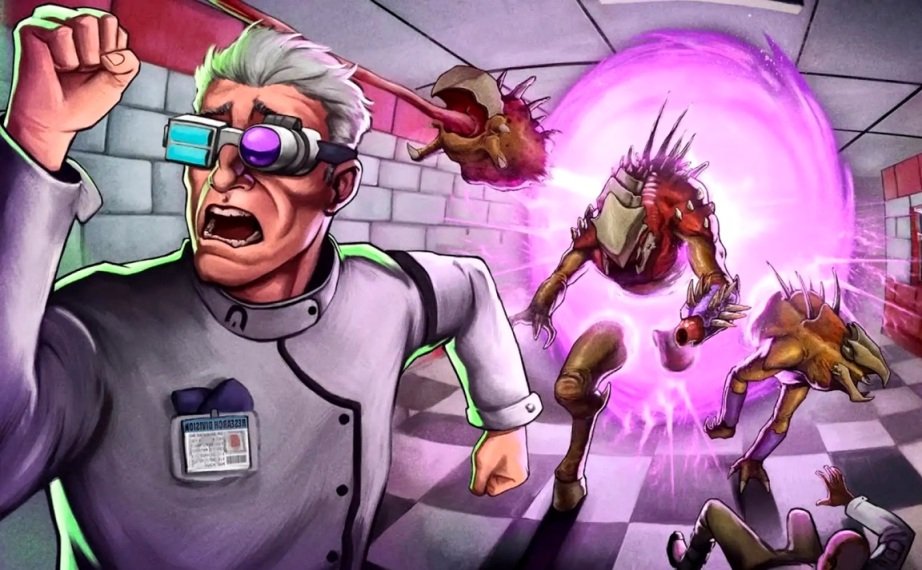Introduction
When we think about dedicated servers, we often focus on their hardware specifications, speed, and reliability. However, much like how ecosystems depend on abiotic factors such as temperature and humidity, dedicated servers are also influenced by their surrounding environment. The concept of an “abiotic factor dedicated server” might seem unusual, but it’s crucial for understanding how environmental elements like temperature, humidity, and air quality impact server performance and longevity. This article will delve into the connection between abiotic factors and dedicated servers, exploring how these elements play a critical role in maintaining a robust and reliable server infrastructure.
Understanding Abiotic Factors
Definition of Abiotic Factors
The non-living elements of an environment that have an impact on living things are referred to as abiotic variables. In natural ecosystems, these include elements like sunlight, temperature, wind, and moisture. These factors are crucial in shaping the environment and determining the conditions necessary for survival.
Examples of Common Abiotic Factors in Ecosystems
In ecosystems, abiotic factors such as water availability, temperature fluctuations, and soil quality dictate the types of organisms that can thrive. For instance, in a desert environment, the extreme heat and lack of water define the types of plants and animals that can survive. Similarly, abiotic factors in a data center environment influence the performance and lifespan of dedicated servers.
What is a Dedicated Server?
Definition of Dedicated Server
A dedicated server is a type of web hosting where a client leases an entire server exclusively for their own use. This setup provides greater control over the server’s hardware, software, and operating system, making it an ideal solution for websites and applications that require high levels of performance and security.
How Dedicated Servers Work
Dedicated servers operate by allocating all of their resources, including CPU, RAM, and storage, to a single client. Unlike shared hosting, where multiple clients share the same server, a dedicated server ensures that no other users can affect the performance of the server. This makes it particularly suitable for businesses that handle large volumes of traffic or require robust security measures.
The Connection Between Abiotic Factors and Dedicated Servers
Analyzing the Concept: Abiotic Factor Dedicated Server
The term “abiotic factor dedicated server” may sound unusual, but it effectively highlights the importance of environmental conditions on server performance. Just as abiotic factors influence the natural world, they also impact the technological world of data centers. Understanding how these factors affect dedicated servers can help in optimizing their performance and ensuring their longevity.
The Role of the Environment in Server Performance
The environment in which a dedicated server operates can significantly impact its efficiency and reliability. Factors such as temperature, humidity, air quality, and power stability are crucial for maintaining optimal server conditions. Inadequate management of these abiotic elements can cause problems for servers, from reduced performance to total hardware failure.
Key Abiotic Factors Impacting Dedicated Servers
Temperature
The Importance of Cooling Systems
Temperature is one of the most critical abiotic factors affecting a dedicated server. High temperatures can lead to overheating, which may cause servers to slow down, crash, or suffer permanent damage to hardware components. To counteract this, data centers use advanced cooling systems to maintain a stable temperature, ensuring that servers operate within safe limits.
Humidity
Managing Moisture Levels in Data Centers
Humidity levels must be carefully controlled in any environment housing a dedicated server. Excess moisture can lead to condensation, which poses a risk of short circuits and damage to electronic components. Conversely, too little humidity can lead to static electricity, which can also harm servers. Maintaining an optimal humidity level is crucial to prevent these risks and ensure the smooth operation of the servers.
Air Quality
How Dust and Pollutants Affect Server Performance
Air quality is another vital abiotic factor in a dedicated server environment. Dust and airborne pollutants can accumulate inside servers, clogging cooling systems and causing them to overheat. Additionally, these particles can damage sensitive electronic components, leading to reduced performance or hardware failure. To combat this, many data centers employ air filtration systems and cleanroom standards to ensure a contaminant-free environment.
Power Supply
The Necessity of Uninterrupted Power Supply (UPS) Systems
A stable power supply is essential for the continuous operation of a dedicated server. Power fluctuations can cause servers to reboot, leading to data loss and downtime. In severe cases, power surges can damage the server’s components. To prevent these issues, data centers often use Uninterruptible Power Supply (UPS) systems and backup generators to provide consistent power and protect against outages.
Physical Location
Why Geographical Location Matters for Server Hosting
The physical location of a data center plays a significant role in determining the performance of a dedicated server. The appropriateness of a place for server hosting depends on a number of factors, including the local climate, the likelihood of natural disasters, and its closeness to important internet backbones. Data centers in places prone to earthquakes, for example, benefit from lower cooling costs due to the presence of seismic-resistant infrastructure.
Optimizing Dedicated Servers by Controlling Abiotic Factors
Implementing Efficient Cooling Systems
To optimize the performance of a dedicated server, it’s crucial to have efficient cooling systems in place. These systems range from traditional HVAC units to more advanced liquid cooling solutions, all designed to manage the heat generated by servers effectively.
Humidity Control Measures
Data centers use a combination of humidifiers and dehumidifiers to maintain optimal humidity levels. This approach prevents the damaging effects of condensation and static electricity, ensuring that servers remain safe from moisture-related issues.
Air Filtration and Cleanroom Standards
Implementing advanced air filtration systems and maintaining cleanroom standards can significantly reduce the risk of dust and pollutants affecting server performance. Regular maintenance and air quality monitoring are essential practices in data centers to keep servers running smoothly.
Power Supply Management and Backup Systems
Reliable power supply management is crucial for preventing downtime and hardware damage. By implementing robust UPS systems and backup generators, data centers can ensure that their dedicated servers remain operational even during power outages.
Choosing the Optimal Server Location
Selecting the right location for a data center is critical for optimizing the performance of a dedicated server. Factors such as local climate, access to renewable energy sources, and proximity to major network hubs should all be considered when choosing a location.
Impact of Poor Management of Abiotic Factors on Dedicated Servers
Risks of Overheating
Servers that are not adequately cooled are at risk of overheating, which can lead to performance degradation and potential hardware failure. Overheating can also shorten the lifespan of the server, leading to increased costs for repairs or replacements.
Potential Hardware Damage from Moisture
Improper humidity control can result in moisture build-up within the server, causing short circuits and damaging electronic components. This can lead to costly downtime and necessitate expensive hardware repairs or replacements.
Downtime Due to Poor Power Management
Without a reliable power supply and adequate backup systems, dedicated servers are vulnerable to unexpected shutdowns, leading to data loss and significant downtime. This can have severe consequences for businesses that rely on continuous server availability.
Long-Term Impact on Server Longevity
Poor management of abiotic factors can lead to a reduced lifespan for dedicated servers. This not only increases operational costs but also impacts the overall reliability and efficiency of the server infrastructure, potentially leading to higher costs over time.
Case Studies: How Companies Handle Abiotic Factors in Dedicated Server Management
A: Advanced Cooling Techniques
Company A implemented cutting-edge liquid cooling technology that reduced energy costs and improved server performance by maintaining a consistent temperature, even during high usage periods.
B: Humidity Control Best Practices
Company B uses a combination of advanced humidifiers, dehumidifiers, and real-time monitoring systems to maintain optimal humidity levels, preventing condensation and static electricity from damaging their servers.
C: Air Quality Management
Company C adopted cleanroom standards in their data centers, using state-of-the-art air filtration systems to ensure that the air remains free of dust and pollutants, thus protecting their servers from environmental damage.
Technological Innovations for Managing Abiotic Factors
Introduction of AI in Environmental Monitoring
Artificial Intelligence (AI) is increasingly being used to monitor and manage abiotic factors in real-time. AI systems can predict potential issues, allowing for proactive management of temperature, humidity, and other environmental conditions that affect dedicated servers.
Advanced Cooling Technologies
Innovative cooling technologies, such as immersion cooling and phase-change materials, are being developed to manage heat more effectively in data centers, reducing energy consumption and enhancing server performance.
Real-Time Air Quality Monitoring Systems
Real-time air quality monitoring systems enable data centers to maintain optimal air conditions, preventing dust and other pollutants from impacting server performance and longevity.
Future Trends in Dedicated Server Management
Predictive Maintenance Using AI
AI-powered predictive maintenance is poised to transform dedicated server administration. Artificial intelligence (AI) can forecast when a server may fail due to abiotic conditions by evaluating environmental data, enabling the taking of preventive action.
Sustainable Data Centers
The future of data centers lies in sustainability, with a growing emphasis on minimizing environmental impact while optimizing performance. This includes using renewable energy sources and designing facilities with energy efficiency in mind.
The Rise of Eco-Friendly Server Farms
Eco-friendly server farms that lower carbon footprints while retaining high levels of performance and dependability are growing in popularity as environmental consciousness rises.
Conclusion
The concept of an “abiotic factor dedicated server” highlights the critical role that environmental conditions play in the performance and longevity of server infrastructure. From temperature and humidity to air quality and power supply, these abiotic factors must be carefully managed to ensure that dedicated servers operate at their best. By understanding and controlling these elements, businesses can reduce the risk of downtime, prevent hardware failure, and extend the life of their servers. As technology continues to advance, innovations like AI-driven predictive maintenance and sustainable data center designs will further enhance our ability to manage these crucial factors, paving the way for more efficient and reliable dedicated server solutions.
FAQs
1. What is an abiotic factor dedicated server?
The term “abiotic factor” dedicated server describes how non-living environmental elements like humidity, temperature, and air quality affect a dedicated server’s lifespan and performance.
2. How does temperature affect the performance of a dedicated server?
High temperatures can cause servers to overheat, leading to reduced performance, system crashes, and potential hardware damage. Effective cooling systems are essential to maintain safe operating temperatures.
3. What can be done to manage humidity in data centers?
Combining humidifiers and dehumidifiers allows for the regulation of humidity. By maintaining ideal moisture levels, humidity may be prevented before it might harm server components through condensation or static electricity.
4. How important is air quality in maintaining server health?
Air quality is critical because dust and pollutants can clog cooling systems and damage sensitive electronic components. Implementing air filtration systems and cleanroom standards helps maintain a contaminant-free environment.
5. What future technologies will help in managing abiotic factors for servers?
Future technologies include AI-driven predictive maintenance, advanced cooling systems like immersion cooling, and real-time environmental monitoring systems, all of which are aimed at improving the management of abiotic factors in data centers.
Read Also:
Topaz Honkai Star Rail Build: Optimize Your Team’s Potential













